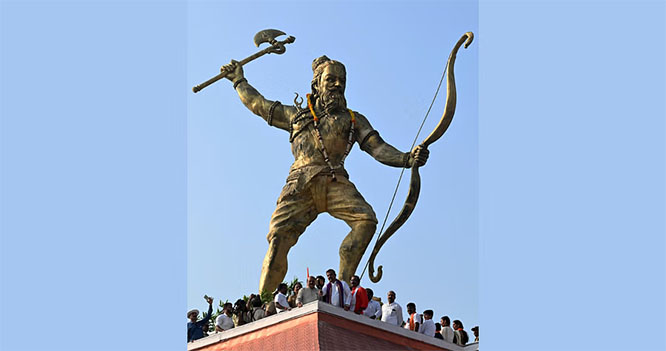Hong Kong, Nov 25: After a massive crackdown on the Islam-following Uyghur community in its Xinjiang province, China is now targeting the ethnic Kazakhs living on its side of the border with Kazakhstan - again on grounds of religion with the objective of forcing them to stop following their Islamic customs, including prayers five times a day.

According to reports, which are usually difficult to come by from Xinjiang the crackdown is happening in the Ili Kazakh, Tacheng and Altey prefectures of Xinjiang, situated along the border with Kazakhstan and home to around 1.5 million Kazakhs. Very little is reported on this community, many of whom moved to China in the last few decades, looking for a better life. However, all is not good for many of them.
Since the last one year, the Kazakh community in Xinjiang have noticed that Chinese security agencies have been imposing restrictions on their way of life, especially concerning their religious customs. In June 2016, a popular Kazakh Imam Akmet was detained by the police in Xinjiang. According to Radio Free Asia, while this Imam soon died in police custody, by July 2016, more than 100 of his friends and relatives had been rounded up by the local police.
Again on June 10, 2017, it was reported that at least 10 Kazakhs were arrested by the police in Karamay City of Xinjiang for having "close ties" ties with Uyghurs. Now, in the latest report by Radio Free Asia, Chinese authorities in Tekes county of Ili Kazakh Prefecture searched the homes of more than 30 thousand Kazakh families in the last week of October and confiscated Korans, prayer mats and beads and other religious articles. According to this report, the presence of security forces have increased in the area, with the police putting on a watch list all Kazakhs who returned to China after a long stay abroad.
Separately, the Chinese authorities have also issued orders to ethnic Kazakh Chinese nationals to hand over their passports. Local ethnic minorities in Xinjiang are also under pressure to attend flag raising ceremonies with Chinese flags and where the national anthem is played.
For decades, the largest ethnic group of Xinjiang, the Uyghurs, have been facing severe persecution. Things have worsened for them in the last few years with the government imposing large scale restrictions on them including denying them the basic right to practise their religion. It now appears that Chinese security agencies have similarly begun targeting the Kazakhs.
China and Kazakhstan share cordial relations and the Kazakh government is positively disposed towards China. However, there is a growing resentment against increasing Chinese presence in the country. For instance, in early 2016 impending land reforms that would give the Chinese the right to purchase land in Kazakhstan led to one of the biggest protests in the country in decades.
Though the Kazakh government has tried to keep this under wraps Chinese human rights violations against the ethnic Kazakhs, civil rights activists and journalists in Kazakhstan are using the social media to raise awareness on this issue and this June, a Kazakh writers' organisation gave a call for Kazakh President Nursultan Nazarbaev to take up the matter with his Chinese counterpart.
It is unlikely that Kazakhstan will consider it worthwhile to raise this issue with China, which in the recent years has invested billions of dollars in the country, according to Kazakh community leaders in Xinjiang. They say that if things continue the way they going the Community would find itself in a worse position than the Uyghurs as China pushes ahead with its crackdown on Islamic rituals and customs.







Comments
Add new comment